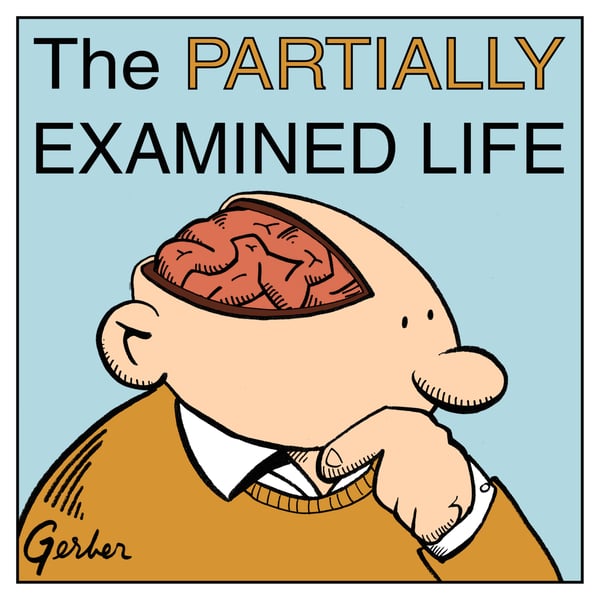Ep. 226: Francis Bacon Invents Science (Part Two)
The Partially Examined Life Philosophy Podcast
Mark Linsenmayer
4.6 • 2.3K Ratings
🗓️ 30 September 2019
⏱️ 61 minutes
🧾️ Download transcript
Summary
Continuing on Sir Francis Bacon's New Organon (1620).
We cover more of Bacon's "idols" and how Bacon divides religion from science (and what this means politically). We then move on to book 2, including Bacon's novel update of the term "form," and take a look at Bacon's method of doing science by filling out tables before actually doing experiments.
Start with part one or get the full, unbroken Citizen Edition. Please support PEL, like, get Patreon's feed for a mere $1/month.
End song: "Stuck in a Cave" by Chrome Cranks; hear Mark talk to singer/songwriter Peter Aaron on Nakedly Examined Music #93.
Transcript
Click on a timestamp to play from that location
| 0:00.0 | You're listening to the partially examined life episode 226 Part 2. |
| 0:12.9 | We've been discussing Sir Francis Bacon's new organon from 1620. |
| 0:17.7 | Let's move on to the second idol, the idols of the cave that's supposed to interfere with our or the den. |
| 0:25.8 | Depending on your translation, things idiosyncratic to individuals which would interfere with their applying correct scientific reasoning in all circumstances. |
| 0:35.7 | So you might really be into some particular kind of theory, for instance. |
| 0:39.5 | You may discover in some area, you've gotten very excited about something and you just apply it across the board and think that this is the foundation of nature. |
| 0:47.1 | For instance, Nietzsche's will the power in that area, I should say, Shopenhauer's view of power there. |
| 0:53.1 | Seeing that in an analysis of human relations and then just sort of imposing that on, yeah, that works for nature. |
| 0:59.2 | Let's make that entire cosmology. |
| 1:01.3 | And it's unclear whether he's really doing that as a serious scientific hypothesis because Shopenhauer has a contient distinction between the world as it is in itself, which is what he's talking about with Will versus the world as it appears to us, which is what science would investigate. |
| 1:16.8 | But still, I can't help but see this as something that I want to apply to people quite often in the modern age. |
| 1:24.0 | This is the one which just sort of flows out of people's predominant pursuits and obsessions. |
| 1:30.7 | The individual's mind and body, but also from education, habit and accident. |
| 1:34.7 | So in 68, he'll give a summary of what he's just said and he'll tell us. |
| 1:39.9 | One of them is predominant pursuit. |
| 1:42.4 | The other is excess of synthesis and analysis. |
| 1:46.6 | Another one is party zeal for certain theories of certain ages. |
| 1:51.6 | And another one is narrowness of subject. |
| 1:54.0 | These all have to do with habit, I think, ultimately in education. |
| 1:57.8 | Some people, for instance, will be more inclined to the synthetic than the analytic. |
| 2:02.0 | But those are the four brands of this and the synthetic and the analytic will turn out to be interesting because it's one of the places where this is aphorism. |
| 2:09.6 | In 57, where he'll say that if you look too much at individual forms, you essentially weaken the understanding, you weaken your capacity for abstraction. |
... |
Please login to see the full transcript.
Disclaimer: The podcast and artwork embedded on this page are from Mark Linsenmayer, and are the property of its owner and not affiliated with or endorsed by Tapesearch.
Generated transcripts are the property of Mark Linsenmayer and are distributed freely under the Fair Use doctrine. Transcripts generated by Tapesearch are not guaranteed to be accurate.
Copyright © Tapesearch 2025.

